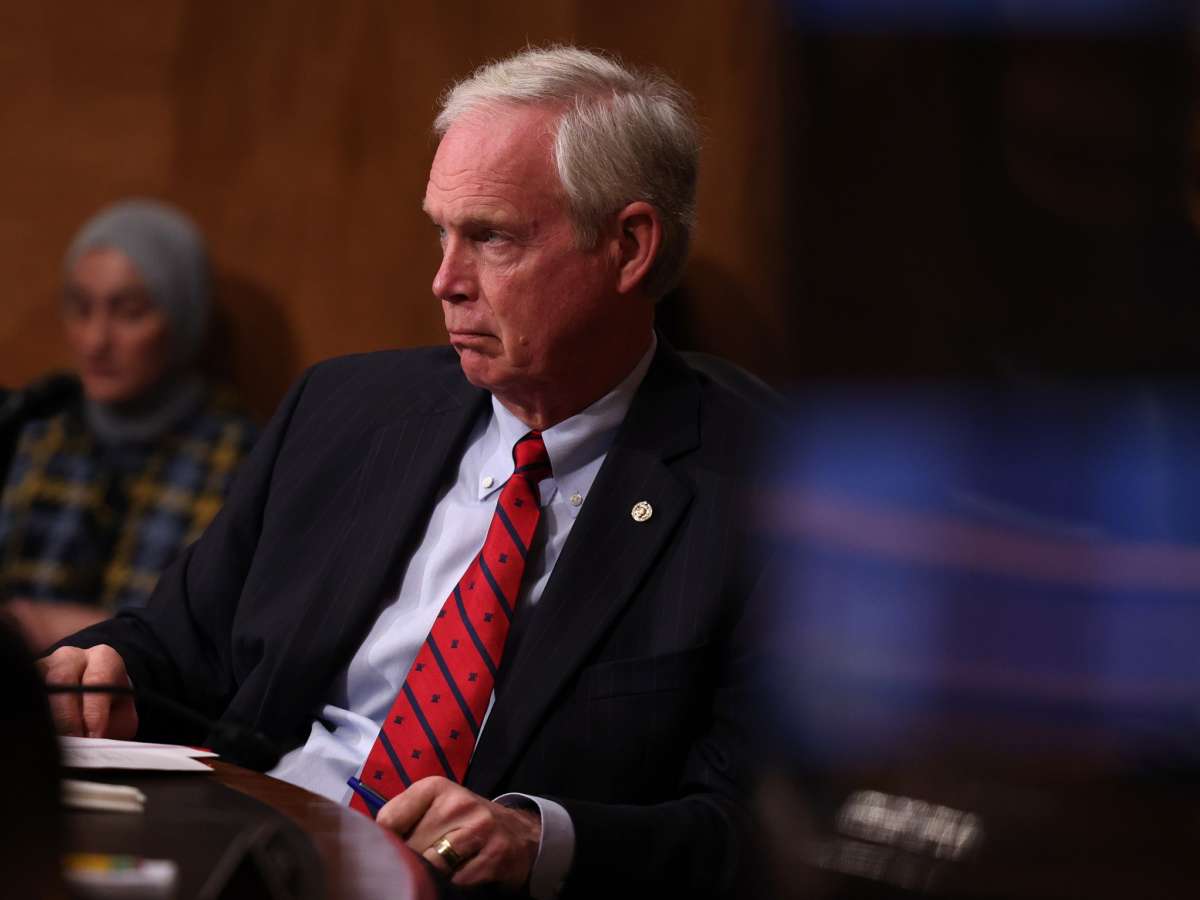In an attempt to overthrow the 2020 presidential election in favor of former President Donald Trump, the office of Sen. Ron Johnson (R-Wisconsin) tried to forward a slate of fake electors to former Vice President Mike Pence, newly released text messages have revealed.
The text messages were sent by Johnson’s office to Pence’s legislative director Chris Hodgson, and sought to pass along slates of fake electors from Wisconsin and Michigan to be included in the official certification of the electoral votes. The news indicates that members of Congress may have been more directly involved in the plot to overturn the results of the 2020 election than was previously known.
The information was released on Tuesday by the House select committee investigating the January 6 attack on the U.S. Capitol building.
In a series of text messages, Johnson’s chief of staff Sean Riley reportedly asked Hodgson about delivering the documents to the vice president’s office. Hodgson told Riley to refrain from doing so — “Do not give that to him,” he said.
Although Johnson has tried to downplay his involvement, he has acknowledged that he was aware of the communications between his office and Pence’s.
“I was aware that we got this package and that somebody wanted us to deliver to the vice president,” Johnson told reporters. “We reached out. They didn’t want it, we didn’t deliver it.”
Johnson, who is up for reelection in this year’s midterms, added that he believed Riley “did the right thing” by trying to contact Pence’s office about handing off the fake electors, but described the event as a “non-story.”
When CNN’s Manu Raju asked the Wisconsin lawmaker why he felt it was a good idea to pass along the documents without vetting them, Johnson didn’t answer, except to say that the decision to do so was made within the timeframe of a few minutes.
He also refused to share who gave the documents to his office, saying only that they were an intern or “somebody from the House.”
“There’s no conspiracy here,” the senator insisted.
Initially, Johnson appeared to fake being on a phone call in order to avoid discussing the matter.
“I’m on the phone right now,” Johnson told reporters as he was walking away from the Capitol.
“No you’re not,” one reporter responded. “I can see your screen.”
The scheme to present fake electors to Congress was orchestrated by Trump’s political campaign and his former personal lawyer Rudy Giuliani. The plan was dependent on Pence acknowledging the fake electors’ documents and counting them as being on par with legitimate electors’ votes during the certification process. Pence would then either suspend the proceedings — ostensibly to allow for more unnecessary investigations into election fraud — or push the matter to the House, where a vote of state delegations in that chamber would decide who should be president, under the terms of the 12th Amendment. If Pence had gone with the latter option, it’s likely that Trump would have remained in office, as Republicans hold a majority of state delegations in the House.
Ultimately, Pence did not agree to go along with the plan, and President Joe Biden was certified the winner of the 2020 presidential election — but not before a mob of Trump loyalists attacked the U.S. Capitol building.
Despite Johnson’s claims that he wasn’t a part of any plan to disrupt the election results, the lawmaker was involved in a number of discussions with Trump’s inner circle on ways to delay the certification of the Electoral College. On January 4, 2021, for example, Johnson took part in a meeting that was convened by the former president at Trump International Hotel in Washington D.C. for the purpose of devising ways to delay the proceeding that was set to take place on January 6.
Johnson had also initially planned to vote against the certification of electors’ votes in a number of states — including his home state of Wisconsin, which was won by Biden — citing Trump’s false claims of election fraud. After the attack on the Capitol, however, Johnson chose not to object to the votes, although he continued to peddle false claims that fraud had impacted the election.


